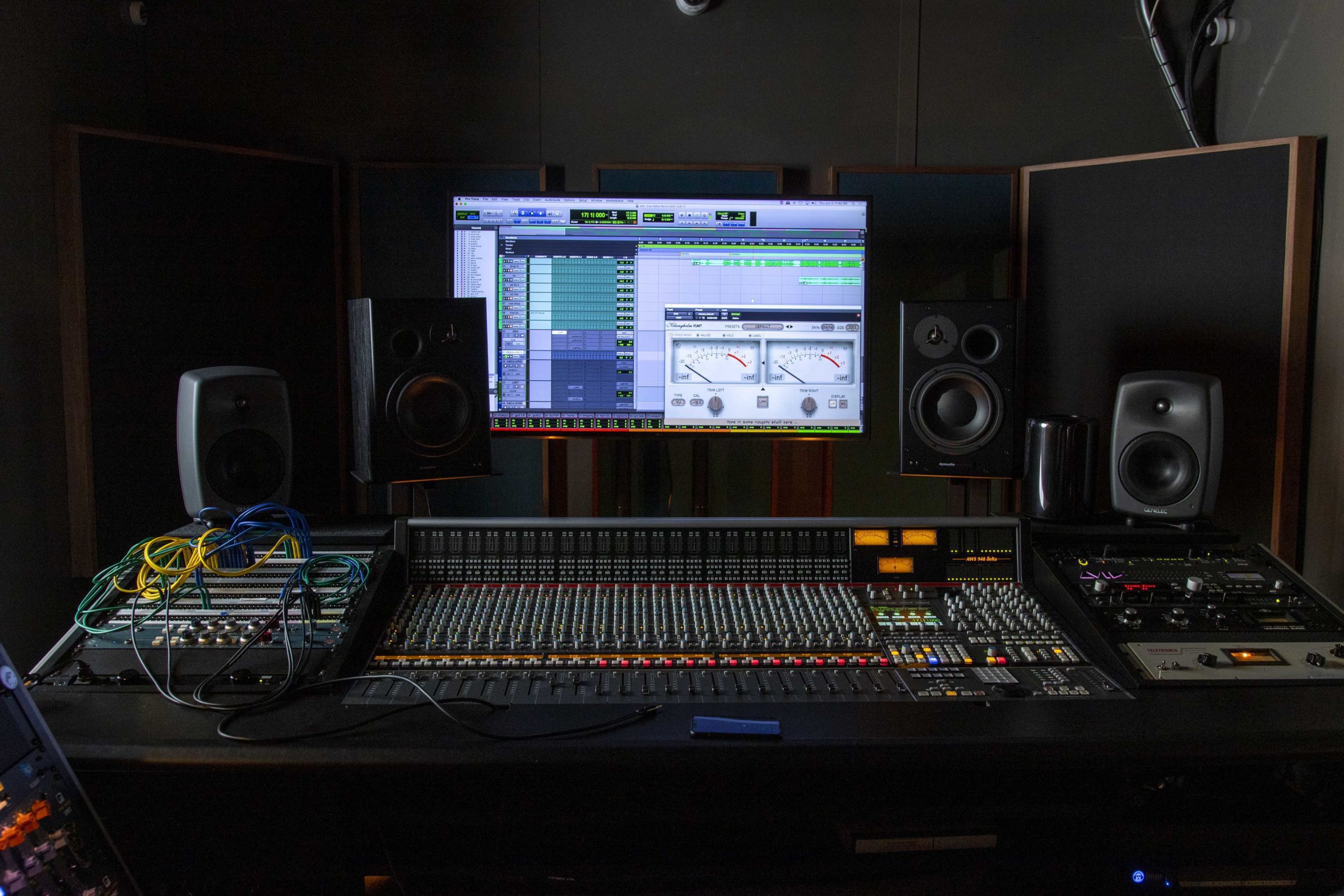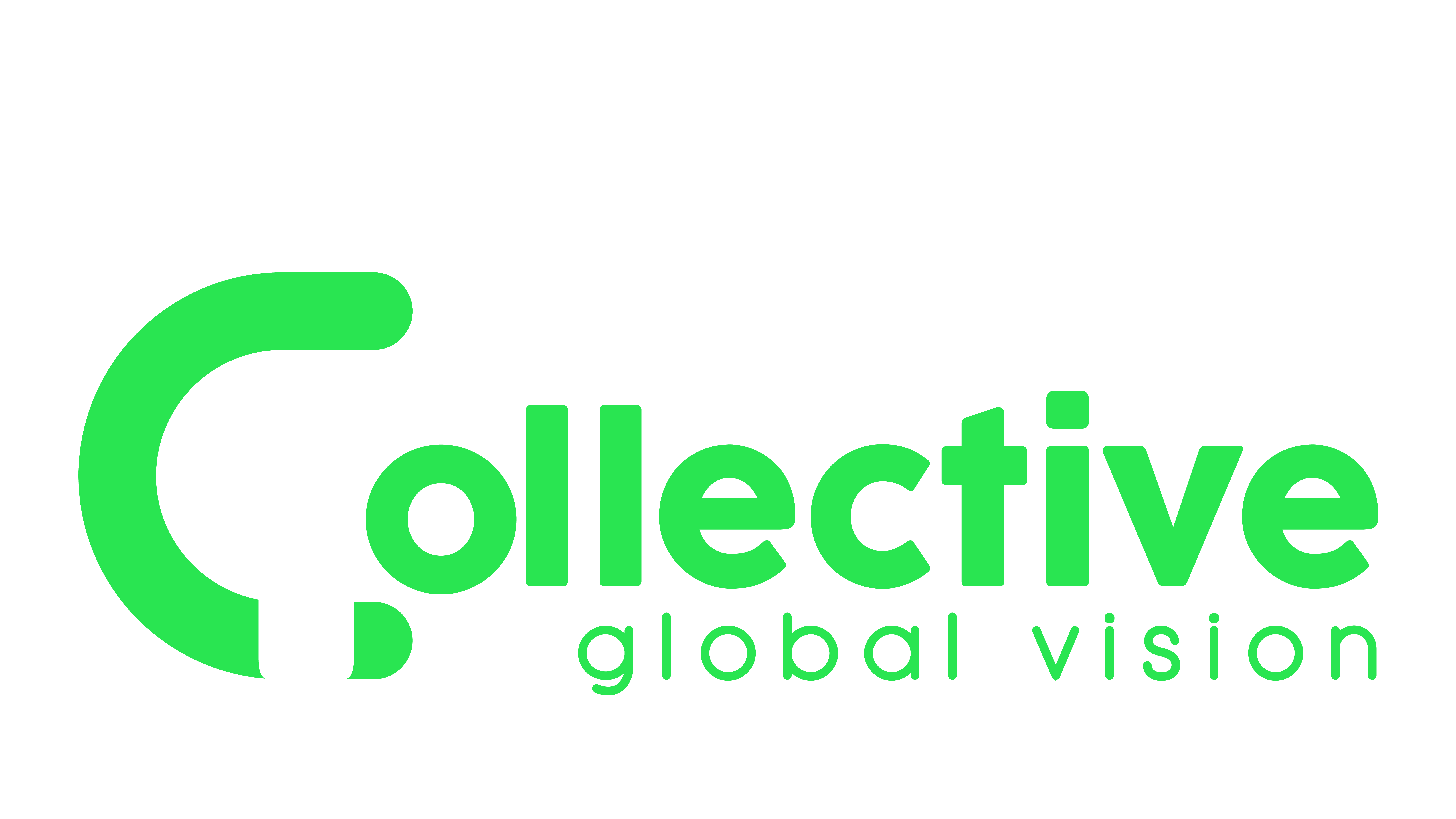Technical Expertise Certificate in Studio Engineering
One Year Program
For aspiring studio engineers who want our most comprehensive education in studio engineering

Technical Expertise in Music Production
Prepare for a career as a studio engineer at The Collective Global Vision with our highest level of technical and artistic music education. The Technical Expertise program begins with foundational classes and progresses to advanced classes in audio engineering, mixing, and mastering in both analog and digital environments.
Small Class Environment
Get extra individualized attention from NYC’s top producers and teachers with a 5-to-1 student-to-teacher ratio.
Professional Recording Studio
Learn your craft on our 48-channel SSL console with outboard gear and iso booths.
Collaborations with Pros
Get in the studio with NYC-based vocalists, instrumentalists, and producers.
Program Cost
$28,125
By the end of your program you will be able to:
Engineer using industry-standard DAWs
Learn Ableton Live or Logic Pro
Use advanced engineering, mixing, and mastering techniques
Get inspired by new sounds and put the finishing touches on your tracks
Collaborate and manage projects in the studio
Find your role and become a creative leader
Navigate the music industry
Learn dealmaking, licensing, and current industry trends
Operate and understand the signal flows of professional recording studios
Get experience using a 48-channel Analog/Digital SSL Console and pro-grade outboard gear
Use innovative and time-tested recording techniques
Master digital, analog, and combined signal flows
Apply music theory to your creative workflow
Communicate your ideas to other musicians and work more efficiently
1 Years
of well-rounded music education
243 Hours
of guided learning with a music industry professional
Daily
access to the facility and production gear
Weekly
networking and workshop events
Your Curriculum
MUSIC THEORY FOR PRODUCERS: Music Theory for Producers is a hands-on, practical introduction to music theory tailored specifically for music producers and studio engineers. This course demystifies the fundamentals of music theory and shows you how to apply them directly to your work in the studio. Whether you’re creating beats, arranging tracks, or mixing, you’ll learn how to use theory as a creative tool to enhance your productions and streamline your workflow. Through a combination of clear explanations, real-world examples, and hands-on exercises, students will explore the essential elements of music theory—scales, chords, rhythm, melody, and song structure—and see how they function in contemporary music.
PIANO FOR PRODUCERS: Piano for Producers is a hands-on, practical course designed to help music producers and beatmakers develop essential piano skills for music production. Whether creating melodies, programming chords, or arranging tracks, the piano is one of the most powerful tools in a producer’s toolkit. This course focuses on teaching students the fundamentals of piano playing in a way that’s directly applicable to their work in the studio.
Through a combination of clear instruction, practical exercises, and real-world applications, students will learn how to play chords, scales, and melodies on the piano—and how to use these skills to enhance their productions. No prior piano experience is required; this course is designed to meet students where they are and help them build a strong foundation for their creative work.
INTRODUCTION TO PRO TOOLS: Introduction to Pro Tools is a course designed to equip students with the fundamental skills and techniques needed for studio engineering. This course covers essential topics such as navigating the software interface, understanding basic audio and MIDI concepts, and utilizing the DAW’s powerful recording capabilities. Students will learn to use the software to record & track a variety of instruments, exploring different genres and production styles. Through hands-on projects and practical exercises, this course aims to develop both technical proficiency and creative confidence, providing a solid foundation for both producers and musicians.
STUDIO RECORDING I: Explore the fundamentals of multitrack recording techniques and technology in Studio Recording I. This course covers the principles of sound recording, microphone placement, signal flow, and mixing. Students will gain hands-on experience in creating, editing, and mixing multitrack recordings, preparing them for professional audio production environments.
MIX ENGINEERING: Mix Engineering is a comprehensive course that equips students with the skills and knowledge necessary to create professional-quality audio mixes. Bridging theory with hands-on practice, this course covers advanced techniques in balancing, equalization, dynamics processing, and spatial effects using industry-standard equipment and software. Students will develop critical listening skills, learn mix analysis, and master problem-solving strategies for common mixing challenges. The curriculum emphasizes both technical proficiency and creative decision-making, teaching students to enhance the emotional impact of music through mixing. Through practical assignments and real-world projects, students will explore mix architecture, signal flow optimization, advanced EQ techniques, dynamic range control, creative use of effects, stereo imaging, and mix bus processing.
ANCHOR TEACHER PRIVATE LESSONS: Anchor Private Lessons provide personalized, one-on-one instruction designed to complement and enhance the skills learned throughout the program. Whether students are looking to deepen their understanding of a specific topic, catch up on challenging material, or explore advanced concepts, these tailored sessions offer the flexibility to focus on individual needs and goals.
PRODUCING IN THE DIGITAL AUDIO WORKSTATION I: Producing in the Digital Audio Workstation is an introductory course designed to equip students with the fundamental skills and techniques needed for music production using either Ableton Live or Logic Pro. This course covers essential topics such as navigating the software interface, understanding basic audio and MIDI concepts, and utilizing both DAW’s powerful built-in instruments and effects. Students will learn to create, arrange, and mix their own tracks, exploring various genres and production styles. Through hands-on projects and practical exercises, this course aims to develop both technical proficiency and creative confidence, providing a solid foundation for both producers and musicians.
STUDIO RECORDING II: This advanced course focuses on capturing high-quality recordings of various instruments in a professional studio environment. Students will learn to select and utilize appropriate microphones, preamps, compressors, and equalizers to achieve optimal sound for different instruments and genres. The course covers advanced techniques for recording drums, guitars, bass, vocals, and acoustic instruments, with emphasis on signal chain optimization and creative use of analog hardware. Students will gain hands-on experience with outboard equipment, learning how to integrate these tools with digital workflows . Topics include parallel compression, hardware summing, and tape saturation techniques. Students will develop critical listening skills and learn to make informed decisions about equipment selection and signal processing to achieve professional-grade recordings.
AUDIO MASTERING: Audio Mastering is an advanced course that builds upon the foundation laid in Mix Engineering, focusing on the crucial final stage of music production. This course delves into the art and science of audio mastering, teaching students how to polish and finalize mixes for commercial release. Students will learn to use specialized mastering tools and techniques to achieve optimal loudness, tonal balance, and stereo imaging across various playback systems and formats. The curriculum covers critical listening in a mastering context, analog and digital signal processing, dynamic range management, mid-side processing, and metadata implementation. Students will also explore the role of mastering in maintaining consistency across an album, addressing specific genre requirements, and preparing audio for different distribution platforms.
DIGITAL ENGINEERING: Digital Engineering focuses on harnessing the full potential of digital audio workstations for mixing and mastering projects across a variety of genres. This course emphasizes the use of native DAW tools, built-in effects, and third party plugins to achieve professional-quality results from the versatile, mobile studio contained within a laptop computer. Students will cover EQ, compression, limiting, reverb, delay, and other native effects, as well as techniques for creating depth, width, and clarity in mixes using stock tools. Through hands-on projects ranging from electronic to folk music, students will develop proficiency in efficient workflow strategies, problem-solving within the digital domain, and maximizing the sonic potential of “in the box” mixing and mastering.
STRUCTURE OF THE MUSIC BUSINESS: This course covers the essential components of the music business, including record labels, music publishing, live performance, artist management, digital distribution, and the impact of technology. Students will delve into the roles and functions of various industry players, analyze real-world case studies, and gain insights from industry professionals. Emphasis is placed on understanding current trends, legal considerations, and strategic career planning, equipping students with the knowledge necessary to navigate the dynamic landscape of the music business.
ANCHOR TEACHER PRIVATE LESSONS: Anchor Private Lessons provide personalized, one-on-one instruction designed to complement and enhance the skills learned throughout the program. Whether students are looking to deepen their understanding of a specific topic, catch up on challenging material, or explore advanced concepts, these tailored sessions offer the flexibility to focus on individual needs and goals.
CRITICAL LISTENING IN THE STUDIO: Critical Listening in the Studio develops students’ aural perception and analytical skills for music production. The course covers frequency recognition and evaluation of mix elements including balance, EQ, and effects. Students learn to identify and articulate characteristics of instruments, production techniques, and mixing styles across popular genres through in-class exercises and listening assignments. By honing their ability to make informed decisions in recording, mixing, and mastering, students prepare to achieve professional-quality results in studio environments.
ADVANCED STUDIO PRODUCTION TECHNIQUES: This course focuses on the art and science of producing and engineering full-band recordings in a professional studio environment. Students will learn how to manage complex recording sessions, collaborate with artists and musicians, and capture high-quality recordings of live ensembles. Emphasis is placed on session planning, communication strategies, advanced tracking techniques, and troubleshooting common studio challenges.
CREATIVE RE-AMPLIFICATION & DRUM DOUBLING: This hands-on course explores the art and science of re-amplification in modern music production. Students will master both traditional and experimental re-amping and drum doubling techniques, learning to creatively transform recorded signals through amplifiers, effects, and acoustic spaces. Topics include signal path optimization, phase alignment, microphone selection and placement, parallel processing chains, and integration with digital workflows. Through practical projects, students will apply re-amping to diverse sources including guitars, synthesizers, drums, and vocals. Special emphasis is placed on creative sound design, spatial techniques, and developing signature tones. Prerequisites: Studio Recording I & II.
ANALOG ENGINEERING: Analog Engineering is an advanced course that immerses students in the world of conventional analog mixing consoles, with a focus on Solid State Logic (SSL) systems. This course provides interactive experience with professional-grade analog equipment, bridging the gap between digital workflows and traditional studio techniques. Students will study signal flow, routing, and processing using SSL’s renowned analog summing and dynamics capabilities. The curriculum covers console topology, inline signal path architecture, and the nuanced application of SSL’s iconic EQ and compression. Emphasis is placed on developing critical listening skills in an analog environment, making informed decisions about gain staging, and leveraging the unique sonic characteristics of SSL consoles. Through practical sessions and multi-track mixing projects, students will learn to craft cohesive, professional mixes that showcase the warmth, depth, and clarity associated with high-end analog processing.
ANCHOR TEACHER PRIVATE LESSONS: Anchor Private Lessons provide personalized, one-on-one instruction designed to complement and enhance the skills learned throughout the program. Whether students are looking to deepen their understanding of a specific topic, catch up on challenging material, or explore advanced concepts, these tailored sessions offer the flexibility to focus on individual needs and goals.
1 YEAR FINAL PROJECT: The “Studio Foundations Portfolio” final project is designed to showcase the technical and creative skills students have developed during their first year in the Studio Engineering program. This capstone project requires students to demonstrate their ability to handle recording, mixing, and basic production tasks, while also introducing them to professional documentation and presentation skills.
Students will complete a series of hands-on tasks, including:
- Recording: Capture a multi-track recording of a live ensemble or solo artist, demonstrating proper microphone placement, signal flow, and session management.
- Mixing: Produce a polished mix of the recorded material, showcasing their understanding of balance, EQ, compression, and effects.
- Technical Documentation: Create a detailed report outlining their recording and mixing process, including equipment used, technical decisions, and challenges faced.
Professional Presentation: Present their project to faculty and peers, explaining their creative and technical approach in a clear and professional manner.

